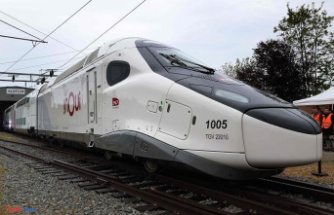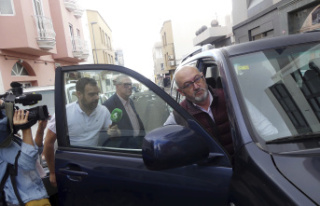The European Commission has opened this Friday a formal investigation into Renfe to find out if it has abused its dominant position in the Spanish rail passenger transport market "by refusing to provide all its content and data in real time to competing ticket sales platforms ". The Competition Department, headed by the Danish Margrete Vestager, after receiving specific complaints and denunciations from other operators, has opted for this first formal step, which does not prejudge any result.
The case is not very complicated on a technical level. Renfe, the historical state rail operator and almost the only one until very recently, sells its tickets at the window and through its website and some applications, and indirectly through third-party ticket sales platforms. These platforms are independent companies that provide services to users or in turn to other intermediaries, such as travel agencies. "The Commission fears that Renfe may have restricted competition in the Spanish market for online rail ticketing services by refusing to provide third party platforms with the full content of its range of tickets, discounts and options and the data in time (pre-trip, during the trip or post-trip) related to its rail passenger transport services," the Brussels statement reads.
The concern and complaint is very specific. The European Commission maintains, defends and emphasizes that the competition rules require that the platforms must have access to Renfe's full content and real-time data in order to adapt their offers to the needs of customers. "The Commission is concerned that Renfe's alleged refusal to provide this content and data in real time could prevent the platforms from competing with Renfe's own direct digital channels to the detriment of consumers."
A formal consultation period is now open, in which the technicians are going to request information from the company, the State. "If proven, the investigated behavior may infringe EU competition rules, which prohibit the abuse of a dominant position," the statement said. Parallel to the initiation of the procedure, the Commission explains today that "a preliminary analysis has been adopted in which the main facts of the matter are summarized and its reservations regarding competition are established. In order to respond to the Commission's concerns, Renfe may now present arguments".
These types of processes can last many months and even years. Over the next few weeks, the community experts will accumulate documentation, listen to all parties and if they consider that there is an abuse of a dominant position, one of the most common causes in Competition, they will take the following steps.
In this preliminary analysis, which is not an expression but an established process, the Commission summarizes the main facts and lists its reservations. To address these concerns, the recipient of the preliminary analysis "may offer undertakings in accordance with Article 9(1) of the Antitrust Regulation which allows the Commission to conclude an antitrust proceeding by accepting the undertakings offered by a company".
That is, instead of going further, if it were clear to everyone that Renfe had not done something right, and they admitted it, they could offer a commitment to fix it as a solution. "Such a decision does not reach a conclusion as to the existence of an infringement of the EU competition rules, but legally obliges the company to respect the commitments presented," says the statement on Friday.
One of the consequences, however, of activating these mechanisms is that when a procedure is initiated by the Commission, this automatically deprives national authorities of their own powers to apply the rules. Article 16(1) further provides that national courts must avoid taking decisions that are likely to conflict with a decision foreseen by the Commission in proceedings that it has already initiated.
According to the criteria of The Trust Project












